Achieving food security in Africa, particularly in response to climate change, requires the development of high-yielding plant varieties that are resistant to pests, diseases, and environmental pressures. Research to identify and create these varieties must be accomplished by local breeding programs, but currently there are about a half dozen breeders on average for each sub-Saharan African country who are responsible for all crops in all zones.
To increase the number of plant breeders for the crop improvement workforce in Africa, SIL partnered with the West Africa Centre for Crop Improvement (WACCI) at the University of Ghana to improve the quality and effectiveness of graduate level plant breeding education programs. Working with breeder educators from the University of Illinois and Iowa State University, the WACCI faculty created new instructor guides, teaching resources, and applied learning activities that can be used by African faculty across the continent tasked with training the next generation of plant breeders. These teaching resources bring curricula to life, enabling students to learn how to apply what they’re learning, and complement the Plant Breeding E-Learning in Africa (PBEA) portfolio of courses.
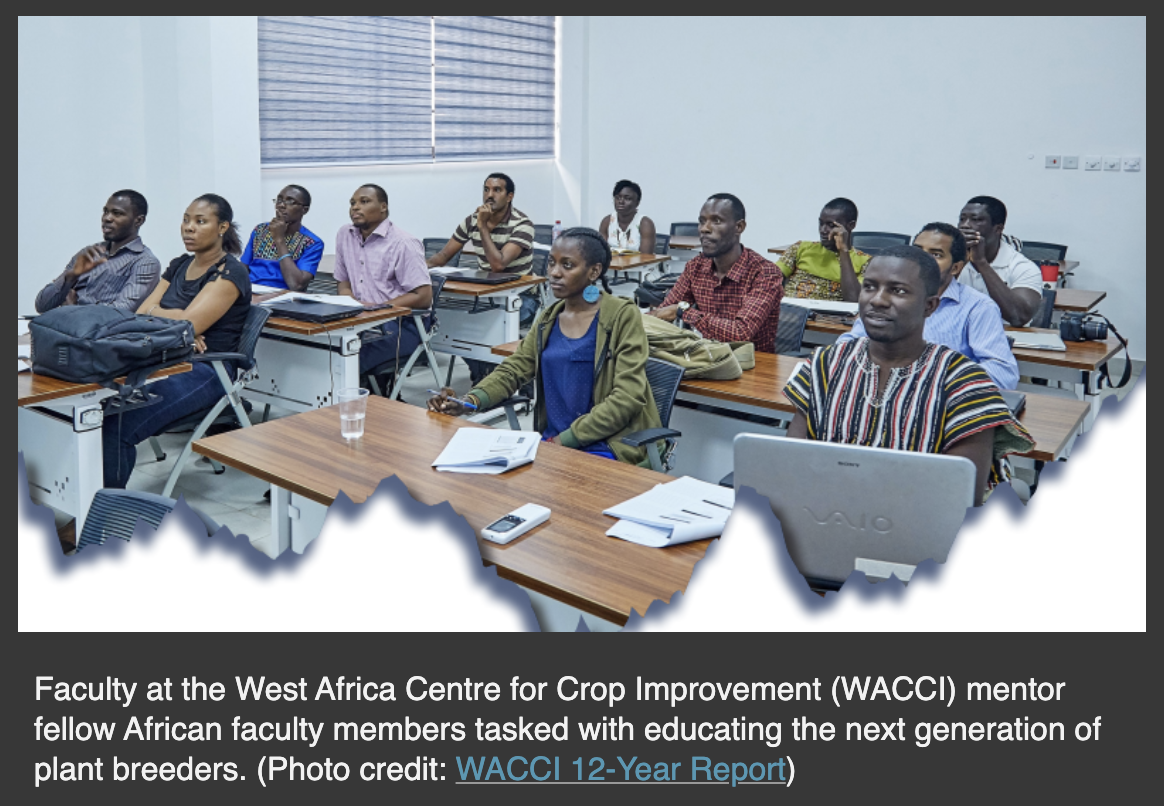
Faculty from WACCI, Iowa State, and University of Illinois worked jointly to create Instructor Guides and associated Applied Learning Activities (ALAs) that can be used by educators for 4 PBEA courses in Molecular Plant Breeding, Quantitative Genetics, Quantitative Methods, and Cultivar Development. Collectively the consortium produced 273 ALAs across 50 educational modules, with each being led by an African faculty member based at WACCI.
The WACCI faculty members leading the effort include Dr. John S.Y. Eleblu, Dr. Beatrice E. Ilfie, Dr. Agyemang Danquah, and Dr. Daniel Dzidzienyo. These individuals will serve as WACCI Faculty Mentors, supporting fellow African educators based at other higher-education institutions wishing to utilize the teaching and course materials.
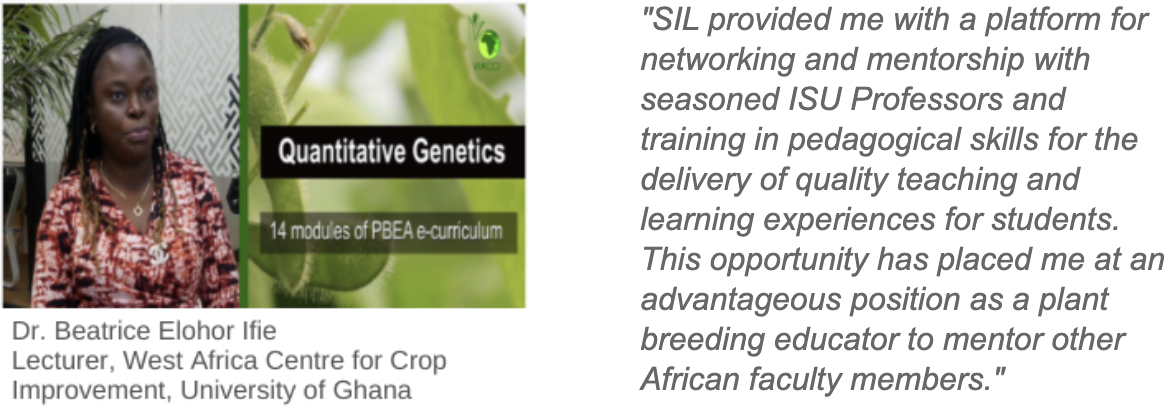
WACCI faculty are already paying their mentorship forward. Earlier this month, they delivered a Teaching Workshop at the 2021 APBA (African Plant Breeders Association) Conference in Kigali, Rwanda. Nearly 100 participants engaged in person or online. The WACCI faculty introduced the PBEA course portfolio, shared Instructor Resources, and introduced the concept of a "flipped classroom" that uses the Applied Learning Activities they developed in collaboration with SIL & ISU collaborators.
The courses follow a "flipped classroom" model that modernizes the traditional lecture system. In a flipped classroom, a pre-class reading assignment accompanies or replaces the lecture, and classroom time is used to complete activities that develop students’ mastery of the concepts and integrate the content. The classroom activities are called Applied Learning Activities (ALAs), and each course includes at least one ALA per hour of teaching time. Through SIL, the WACC/ISU/UIUC team of lecturers and specialists have created over 260 ALAs across the courses.
Now, a new website hosted by WACCI is live and houses all the PBEA Teaching Resources and associated materials. Resources are freely available to access by any African faculty based at a higher-education institution through a secure log-in system. Introductory videos and lists of ALAs for each course can be found on the WACCI-PBEA website.
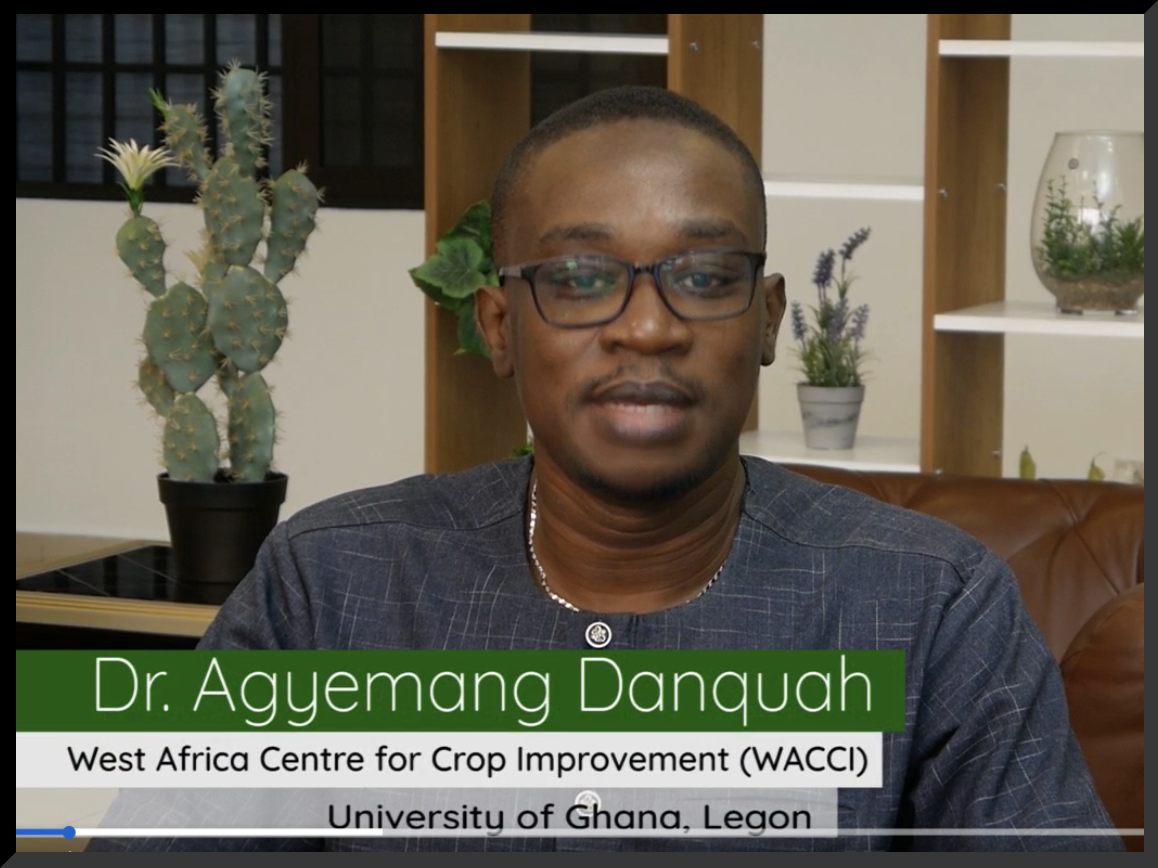
Each course has an introductory video directed at other faculty who may be interested in using the curricula and resources available through WACCI. Click here to see an example from WACCI faculty member Dr. Agyemang Danquah introducing a course on Quantitative Methods.
“Under the leadership of Professor Eric Y. Danquah, WACCI has become a leading educator of the next generation of African plant breeders on the continent," said Dr. Rita Mumm, SIL's breeder education program lead. "As the founding director of WACCI, he has grown the quality of the graduate level PhD and MSc programs in several ways: enhancing curricula, professional development of WACCI faculty, and promotion of research in crop improvement areas. I know of no other university anywhere in the world that has focused more on its junior faculty to build their capacity for scientific research and teaching excellence as has been done through collaborations fostered by Professor Danquah.”
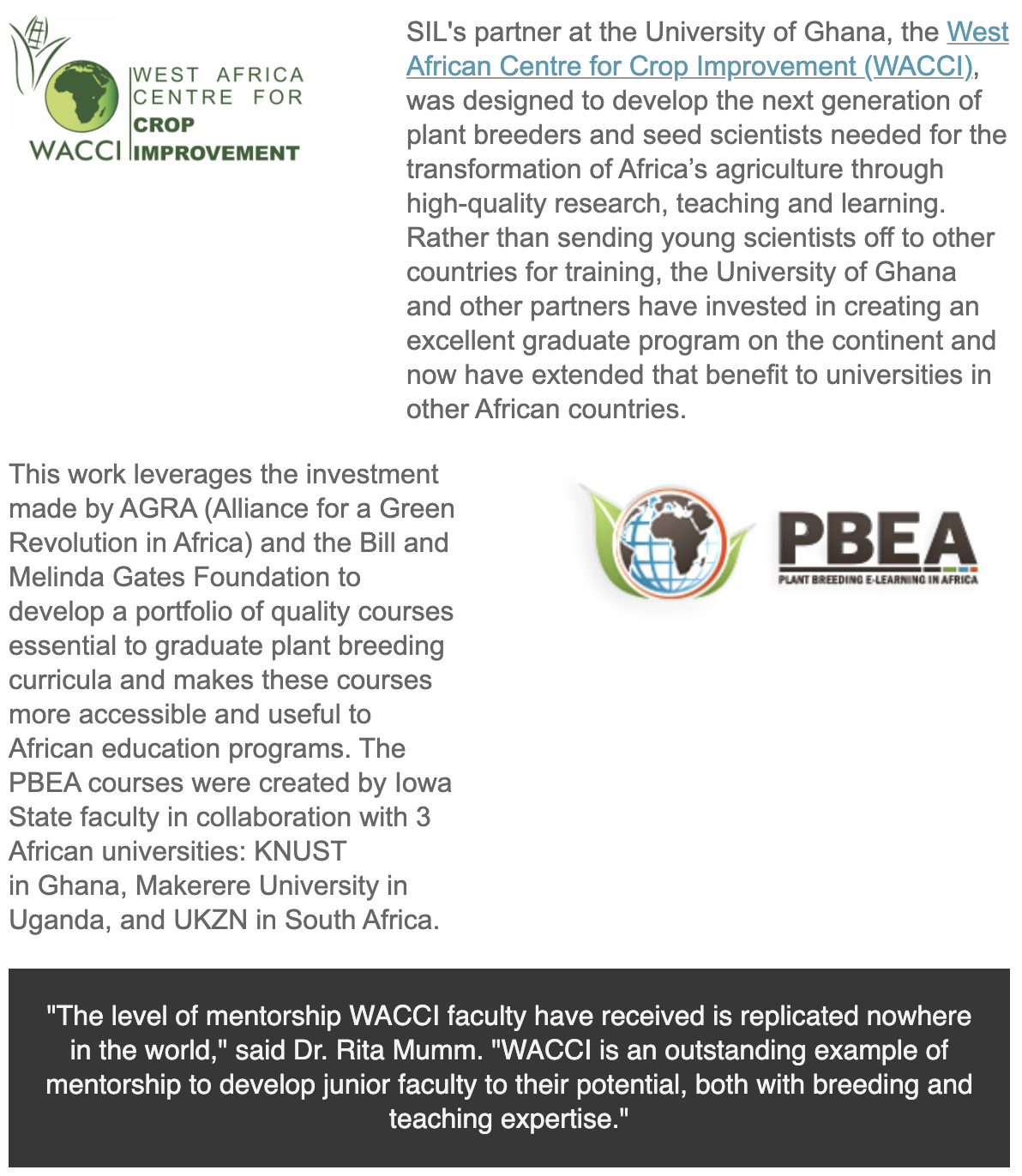
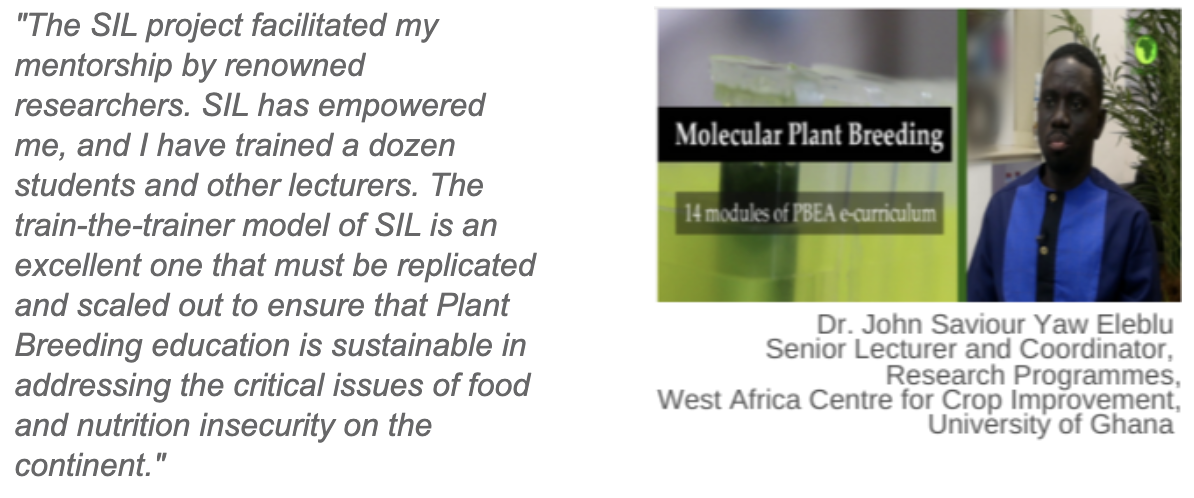
Source: https://mailchi.mp/illinois/next-gen-breeders?e=58b20f61fb&s=04&fbclid=I...
